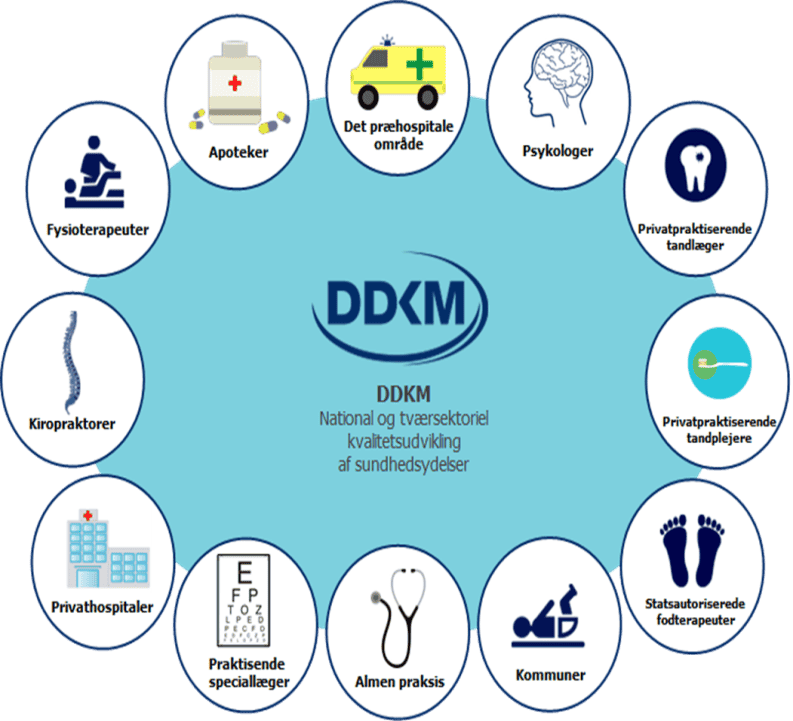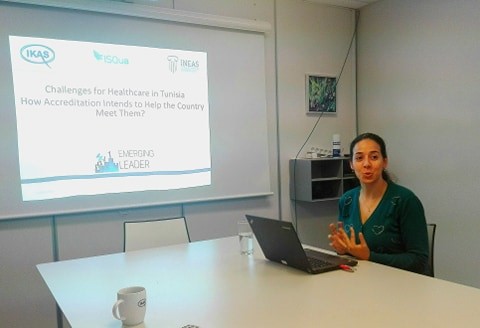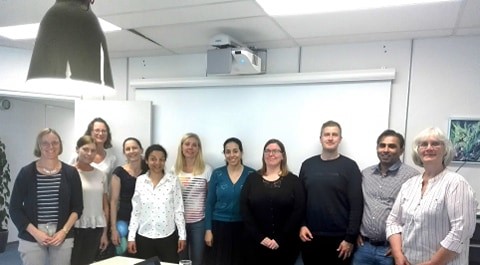As ISQua Emerging Leader, I have been at The Danish Institute for Quality and Accreditation in Healthcare (IKAS) for a two-day study visit. I had the pleasure to be hosted by IKAS during the 20th and 21st of May 2019.
On my first day, I was received by the Deputy CEO Dr Carsten Engel, who introduced me to the CEO and the Senior Management Group. Together, we shared a welcome coffee and had an initial talk on the healthcare system in Denmark and on IKAS’ missions. I found that the healthcare system in Denmark tends to be patient centred. In fact, any patient who waits for more than 30 days to have an appointment for public healthcare service is systematically oriented to the private sector which would be paid by the government. Providing equitable and timely healthcare services is essential in Danish culture.
Then, I continued the discussion with Carsten on the background and the history of accreditation in Denmark, including the Danish Healthcare Quality Programme (DDKM) and the establishment of IKAS in 2005. In fact, IKAS has two offices, one in Aarhus and another in Copenhagen with 32 staff and about 75 surveyors. IKAS started its first accreditations in Public Hospitals. At the moment, it provides accreditation for different intervenors in the Danish healthcare system such as community pharmacies and primary care clinics.

The Danish Healthcare Quality programme was developed by the Danes to fit into a Danish context. Its overall goals are to promote quality culture and more coherent patient pathways, but also to prevent errors and adverse events in health care. In our exchange, Carsten explained that everyone in the organisation should have a common understanding of IKAS’s mission and how given tasks are performed. Through the discussion, I discovered that there is no self-assessment required in IKAS accreditation process. IKAS consider that self-assessment is very important but it does not have to be completed and sent to the accreditation organisation to be reviewed before the survey. The quality improvement concept is to offer strict, rigorous but friendly survey because IKAS isn’t an inspection authority but a part of the healthcare regulatory system. In Denmark, there is also a National Patient Safety Authority which is in charge of collecting and analysing healthcare data and supervising that the healthcare services provided are appropriate, effective and safe.
Carsten demonstrated the IKAS IT platform used by the surveyors. It’s an interesting tool developed by the IKAS IT team and tailored against the different IKAS Standards. It meets the specific needs to perform an external survey in the best conditions.
On the morning of the 21st of May, I met Ms Rikke Marthinsen, who was kind and very professional. We discussed the external survey process, the indicators and the survey follow up process. She showed me the different recordings which help to standardise and align assessment levels. She also explained the measures that are used to ensure internal and external consistency of rating and awards. I learned that for each survey a co-surveyor, called also an internal surveyor because he works for IKAS, is assigned to the survey team. His main mission is to facilitate the survey case processing and to provide IKAS with input for the surveyors’education improvement. This co-surveyor is responsible for addressing any questions the facility or clinic may have on their survey report.
Then, I continued the discussion with Carsten on the different topics treated and the Danish research on accreditation. I retained some key messages from this exchange:
- it’s crucial to have a coherence between the accreditation process, the organisation’s beliefs, the country context and the model of service delivery;
- Organisational actions should be taken in response to observations, feedback or self-reflection resulting from the accreditation process;
- A survey should be rigorous but pragmatic;
- Never over-standardise nor over monitor;
- Do not demand over-documentation.
The preferred quote of Carsten let me think deeply on the performed assessment essence to improve the healthcare quality. This quote says: "If the bureaucratic approach is prevailing, much energy will be used to demonstrate formal compliance with standards, but there will be no real willingness to change and improve patient safety“ (Carlo Ramponi, 2008, at the time Managing Director Europe, Joint Commission International – in the Danish Political Weekly Magazine “Mandag Morgen”).
My last meeting with all IKAS team was dedicated to a presentation I gave entitled: “Challenges for healthcare in Tunisia and how accreditation intends to help the country meet them”. An exciting interaction took place following this presentation and IKAS team was interested to know about the current situation in Tunisia and the functioning of its health system.

I was honoured to have this study visit at IKAS. I had interesting discussions and a rich exchange. I would thank Dr.Carsten Engel, the senior managers and all IKAS staff for their warm welcome and the good moments shared together.

